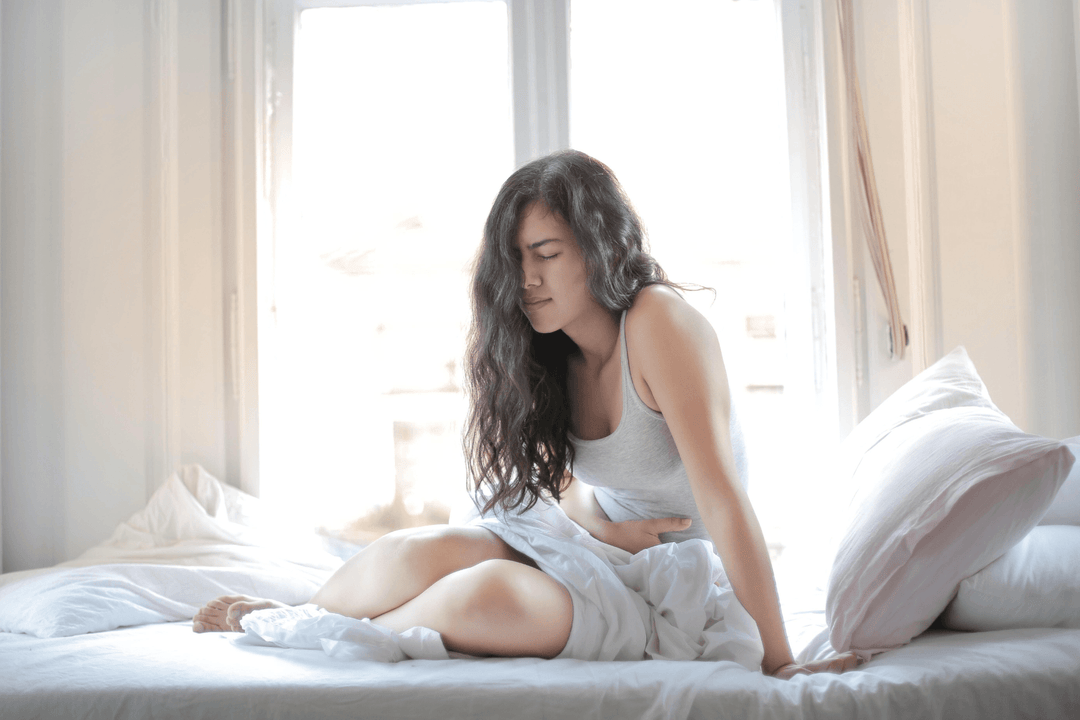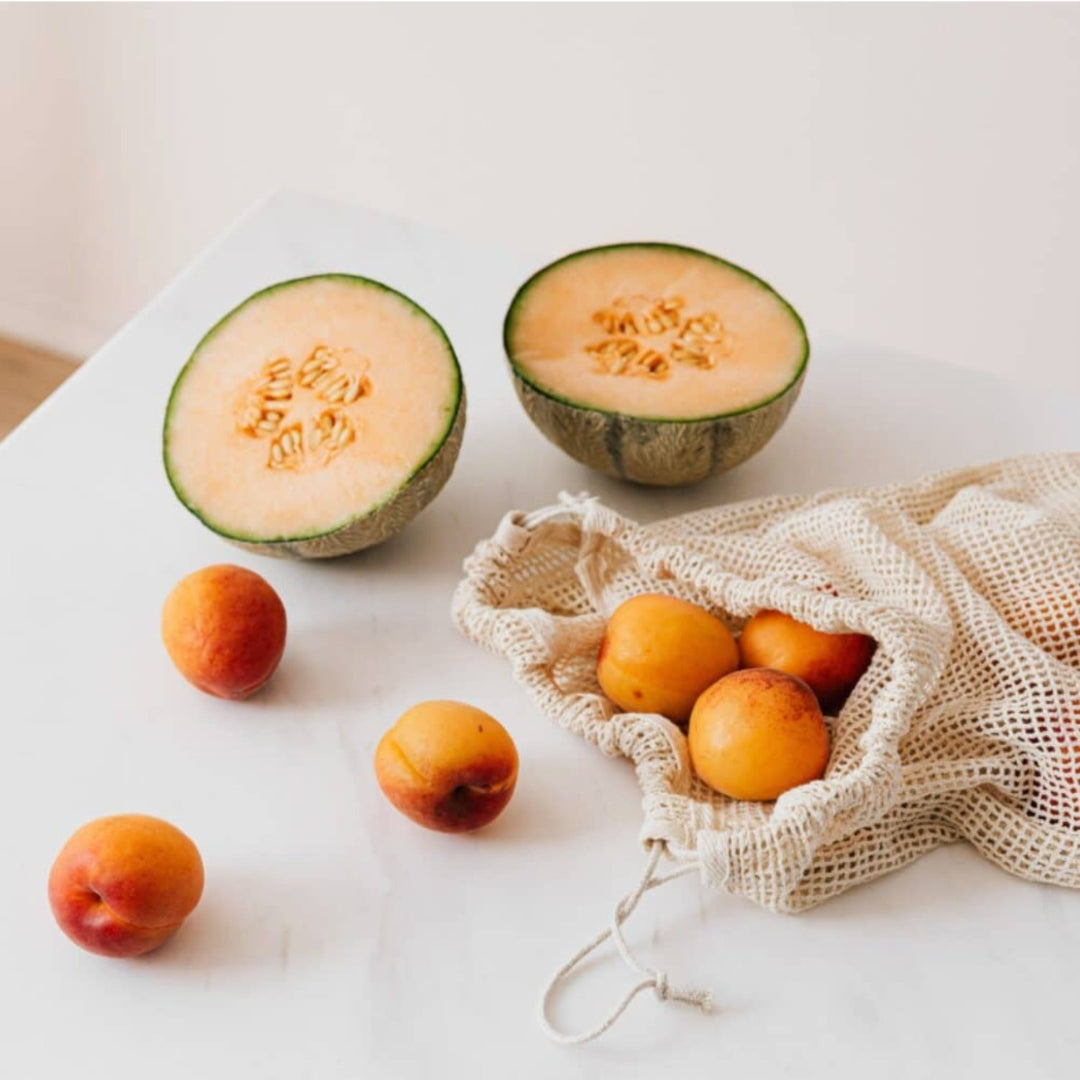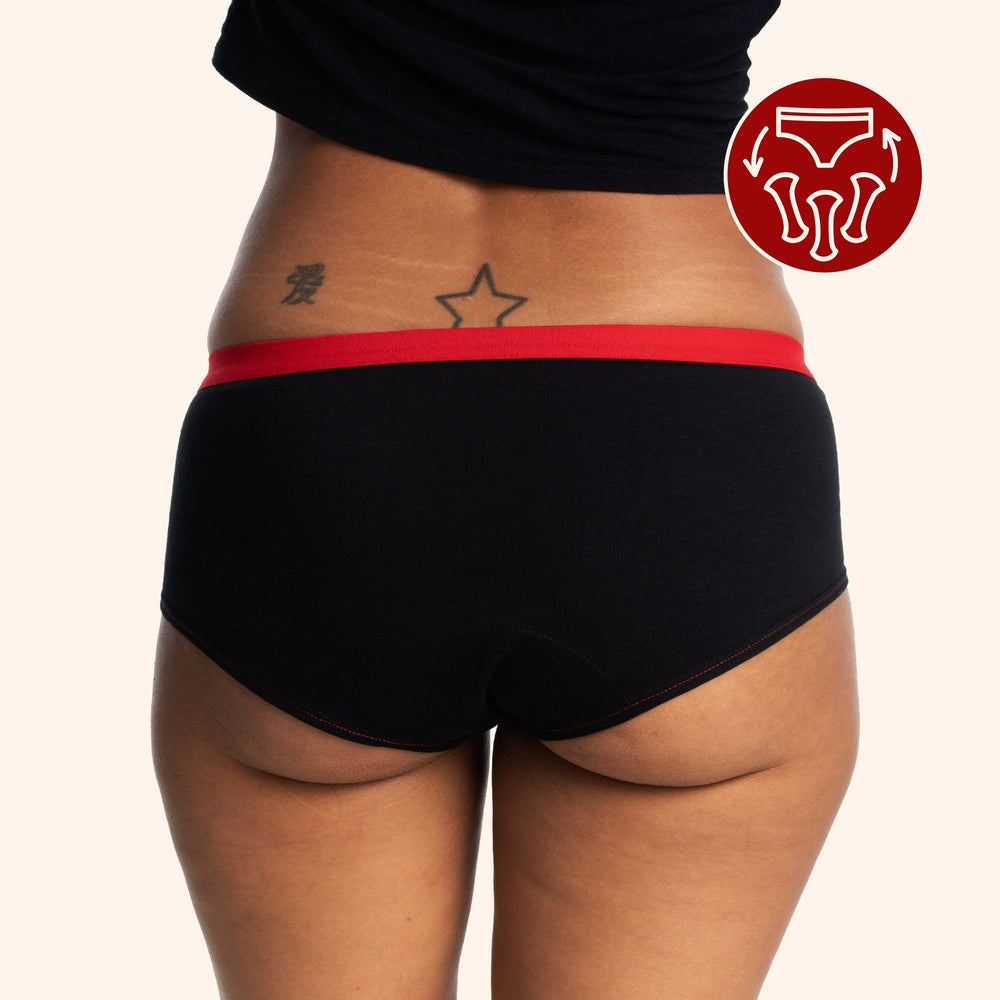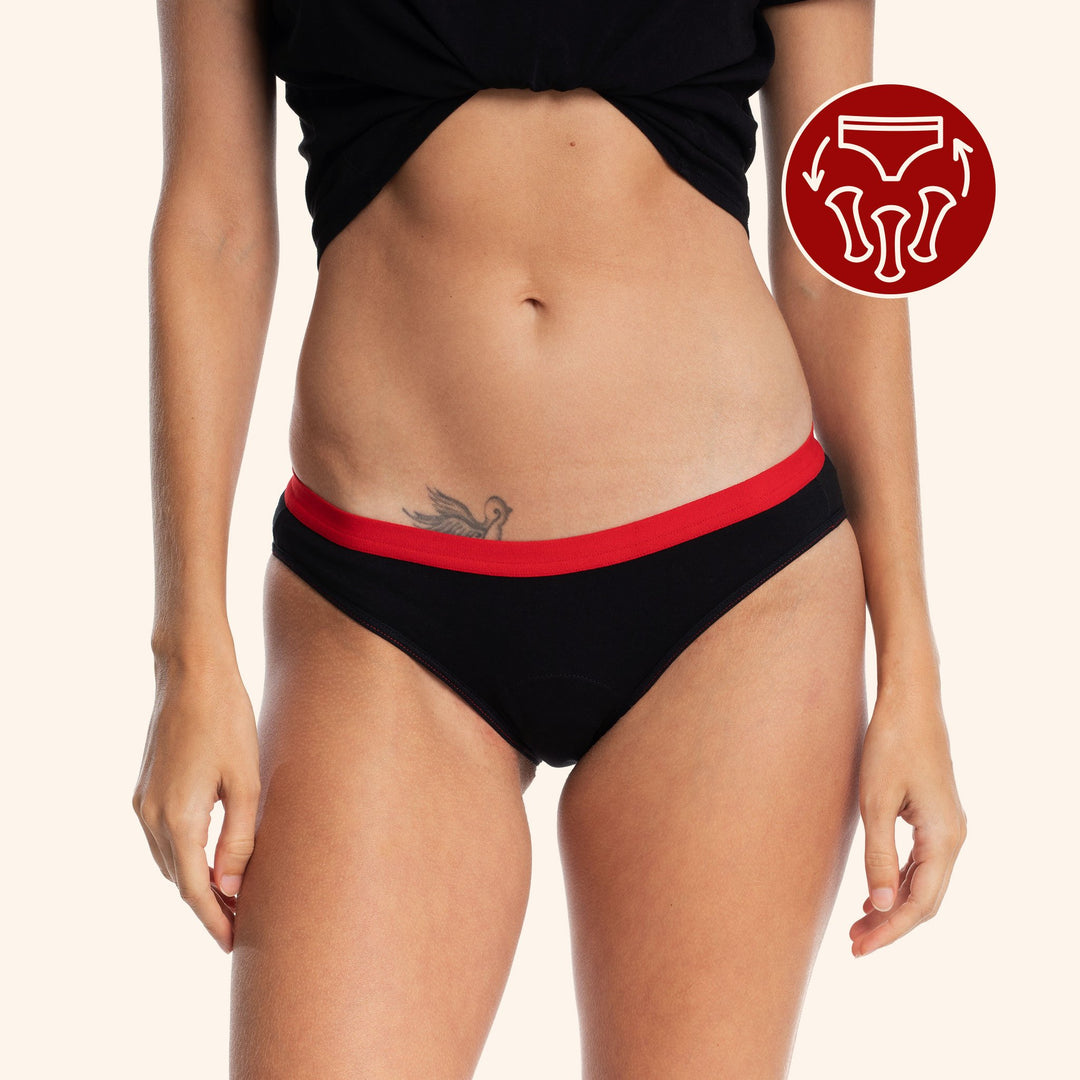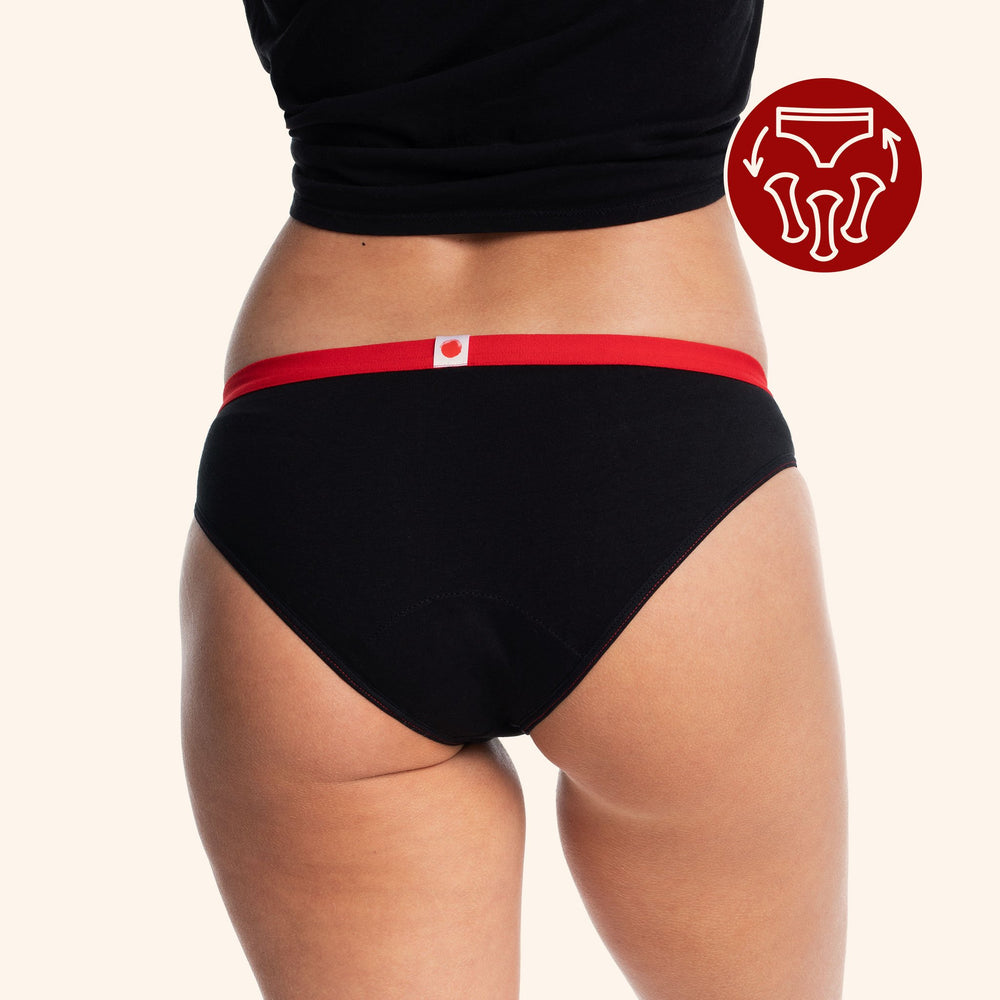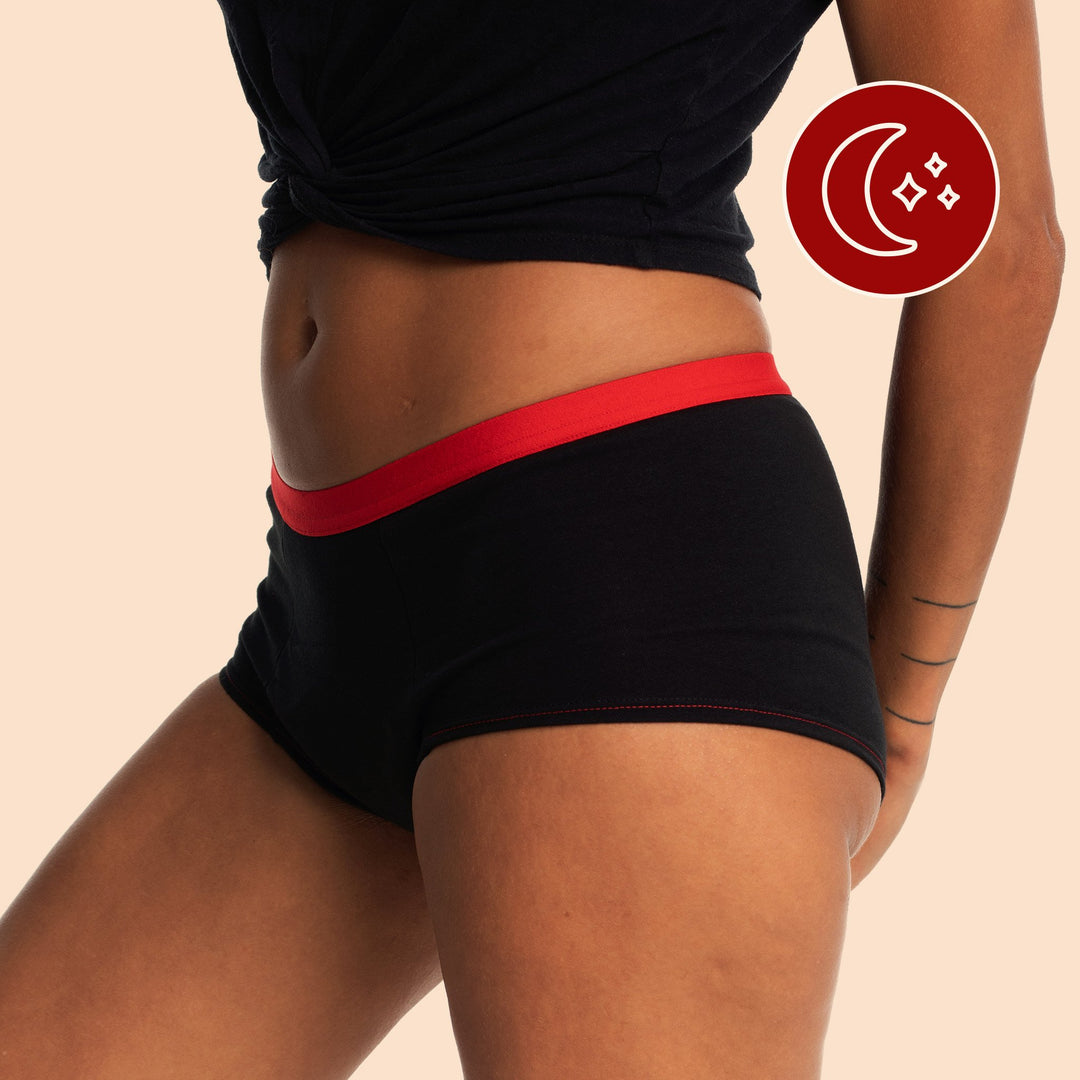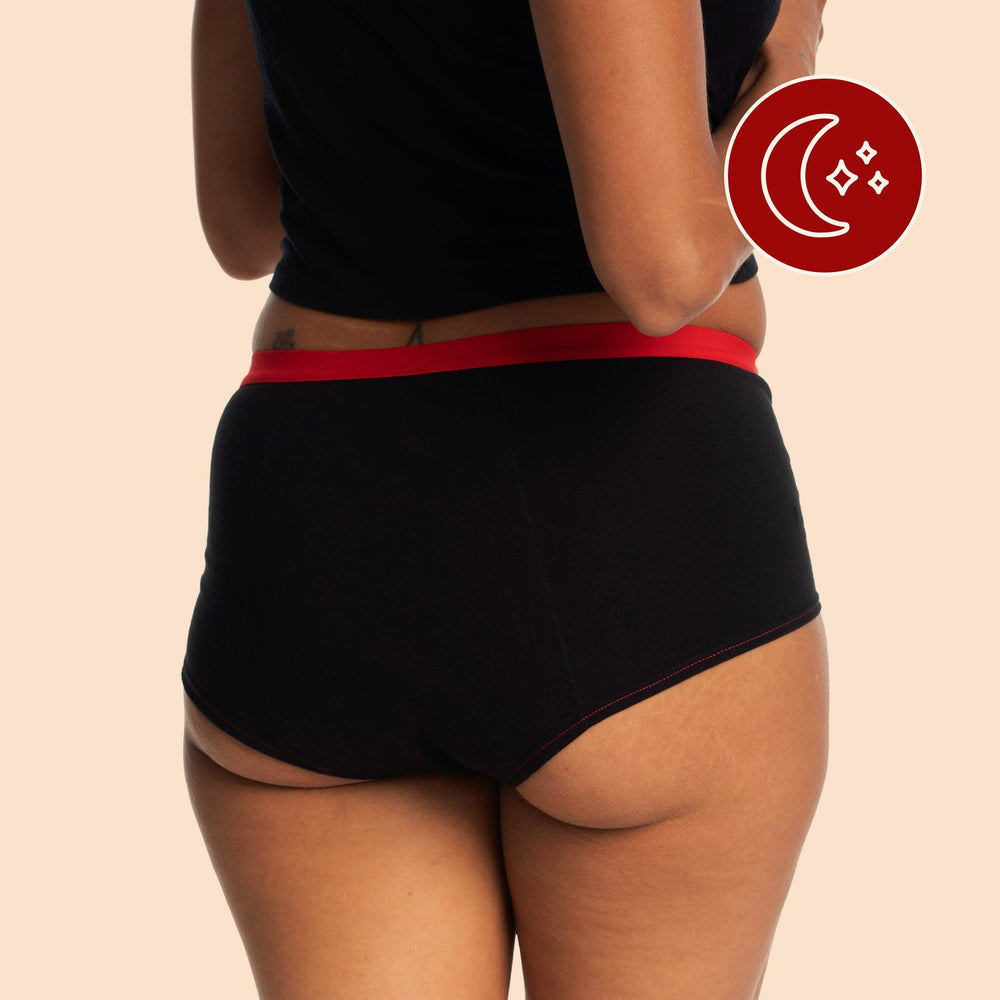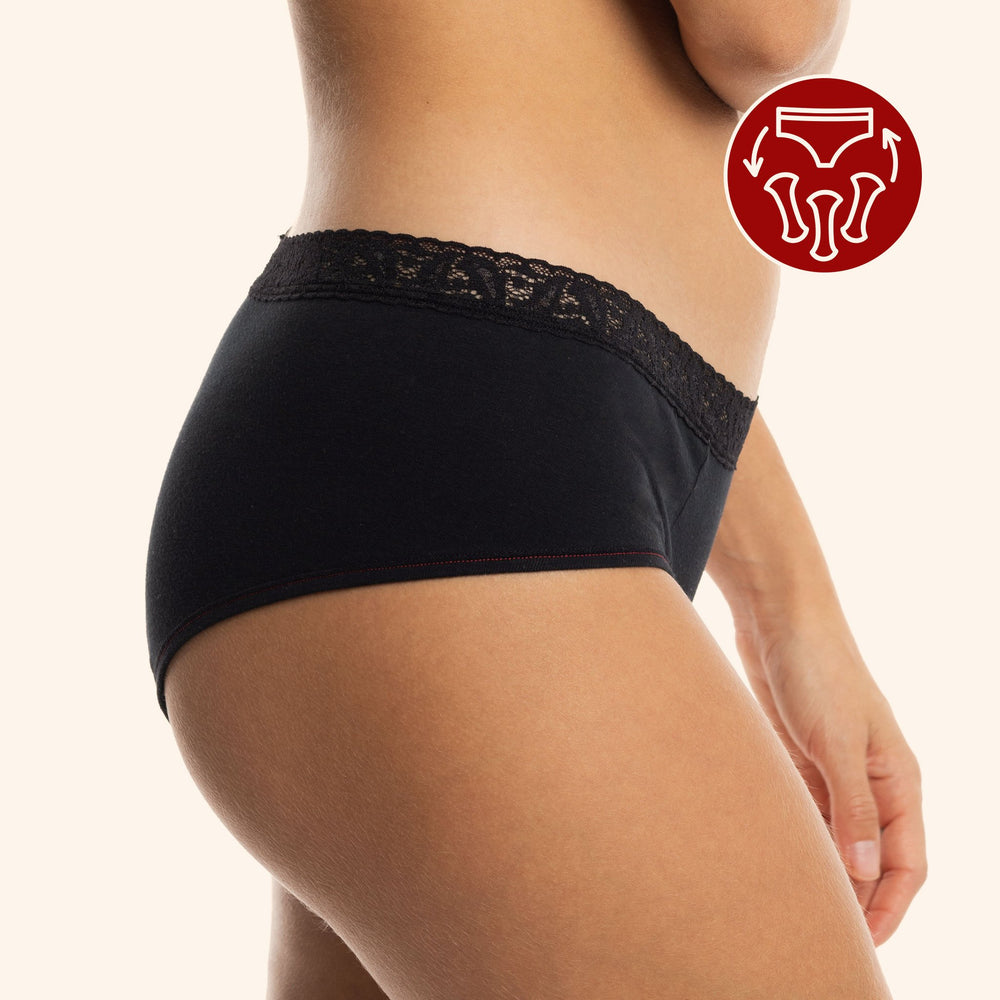
Ever get the feeling that nothing's working out and that everything you do sucks? Ever burst into tears over even the silliest TV love scene? Ever want to launch your computer through the window or rip through your cookie cupboard in 4 minutes flat? If so, it could mean you're about to get your period! Have you ever heard of premenstrual symptoms, or PMS? We've got some tips for helping you soften the symptoms that come with it.
What's premenstrual syndrome?
It's a disorder that affects the emotions and health of about 80% of menstruating people5 to 10 days before the arrival of their period. In short, we're almost all affected!
The main symptoms of PMS fall into 3 categories.
- Digestive disorders: swollen belly due to bloating, diarrhea, and constipation.
- Emotional disorders: irritability, stress,depression, lack of energy, and insomnia.
- Physical discomfort: breast pain,pelvic pain, water retention, and acne.
Do any of these symptoms sound familiar? Welcome to the club!
And don't panic! These symptoms are well known, and for the most part, they're no cause for alarm. On the other hand, what's COMMON isn't necessarily NORMAL.
Understanding the causes
PMS is mainly caused by fluctuations in reproductive hormones (estrogen, progesterone, follicle-stimulating hormone, and luteinizing hormone) which, constantly in motion, generate different phenomena in the body.
Here's a diagram that can help you understand the evolution of your hormones during each month. This is an average; a cycle can be a little longer or shorter depending on the person.

I'm in a bad mood!
In the absence of fertilization during ovulation, estrogen and progesterone drop. The thickened wall of the uterus (the endometrium), which would support a pregnancy, is no longer necessary, so your body is prepping to shed it (menstruation). So far, so good . . .
But now, the drop in estrogen and progesterone generate a corresponding drop in your happiness hormone, more commonly known as serotonin. Serotonin is a neurotransmitter that helps regulate mood, sleep, and appetite. Low levels are linked to feelings of sadness and irritability as well as sleep disturbances and unusual cravings. Everything can be explained! You know that bag of popcorn and box of candy you get before a movie? That's the result of your brain demanding pleasure it so it can increase serotonin levels. If only PMS led to just a few extra bags of chips a month! Who couldn't live with that? Unfortunately, low serotonin levels mean low morale and irritability. Maybe you've noticed that your emotions are beyond you or that certain situations bother you more than usual? These effects can be unpleasant to experience on a daily basis.
I can't do up my jeans!
Now let's take a peek at our digestive systems. During PMS, prostaglandins sow chaos! These are cells produced to trigger contractions of the uterus, with the aim of evacuating the endometrium. Some people feel their effects before the onset of menstruation, which lengthens the period of pelvic pain.. As they spread thoughout the body, prostaglandins sometimes manage to lodge in our intestines, causing them to contract and disrupting their function. Bloating is one of the most common symptoms. The same is true for diarrhea and constipation caused by intestinal contractions. As if our periods weren't enough, now we're battling through traumatic episodes on the toilet!
I've broken out in zits!
The drop in hormones sometimes causes the sebaceous glands to secrete more sebum. This creates skin inflammation and the production of the bacteria responsible for acne. A disturbed digestive system can also accelerate the arrival of acne. So if you have more pimples before and during your period, know that it's normal and you're not alone!
How can you naturally relieve premenstrual symptoms?

A large number of doctors prescribe birth control pills to relieve PMS.. The reason for this solution (which is far from the only one, rest assured!) is that the pill makes your hormones linear – that is, you're not ovulating anymore. No hormone fluctuations = no (or little) PMS. The problem is the pill can come with a bunch of side effects and disconnect you from your menstrual cycle. If you want to live a natural cycle and stay connected to all the messages it sends you, you might have to consider yourself a candidate for the infamous premenstrual symptoms!
But don't panic! It's possible, thanks to naturopathy, to target each symptom and relieve them naturally with plants, vitamins, and minerals.. The good news in this difficult story is that by finding your natural cycles, you'll be (re)discovering Mme Libido! The surge in estrogen at the time of natural ovulation stimulates desire and accentuates sexual energy, which is pretty cool !
Plants, vitamins, and minerals that relieve PMS
- Cohosh, alchemille, and yarrow are plants with antispasmodic properties. During menstruation, they allow the uterine muscle to relax, which relieves pain.
- Chinese angelica, rich in phytoestrogens, is a hormonal regulator. It contains more than 70 different compounds, including essential oils like Z-ligustilide. It has an antispasmodic effect and improves micro-circulation.
- Raspberry leaves contain fragarine, a substance that reduces the inflammatory state of the female reproductive system and uterine cramps.
- Probiotics are the "good" bacteria that the gut needs to be healthy and function effectively. When they're associated with fennel and ginger,they facilitate digestion and alleviate transit disorders like bloating, constipation, and diarrhea.
- Vitamin A, zinc, burdock, and grape seed extract contribute to the maintenance of radiant skin.
- Ginkgo biloba,a powerful energizer, reduces fatigue and boosts immunity.
- St. John'swort, a natural antidepressant, reduces anxiety and irritability.
- California poppy and lemon balm have sedative properties, making them the ideal combo for staying serene and sleeping well.
To learn more about the period ally plants, you can consult the e-book Mme L'Ovary, which we send to everyone who subscribes to our newsletter.
If you're interested in natural remedies, don't hesitate to consult a naturopath or ask your doctor for advice. It's worth noting that some plants have powerful effects and can't be combined with drugs of the anxiolytic type.
It's up to you to find the solution that suits you best! Physical exercise and diet also play a crucial role in our menstrual well-being. In short, taking care of yourself will help you cope with the thornbush that is PMS.
Article written in collaboration with Célia Bachelot, founder of the company Twenty-eight.
Twenty-eight is a brand dedicated to menstrual cycle disorders. A range of herbal dietary supplements, vitamins, and minerals that target symptoms to relieve them without interfering with natural hormonal variations.







